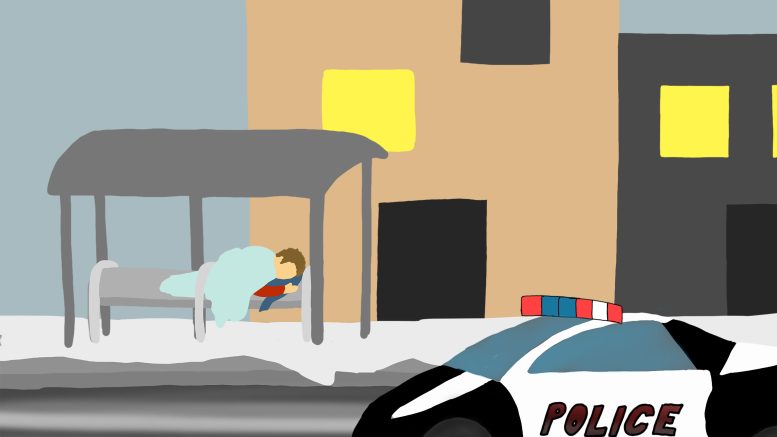The very fact that there are homeless citizens in our city is a glaring problem. My issue is that there are people suffering on the streets while others sit comfortably in their homes. The fact that you can drive through neighbourhoods such as Linden Woods, Tuxedo and Wellington Crescent and see massive houses, then drive through other neighbourhoods and see unhoused people is just plain wrong.
A study by End Homelessness Winnipeg found that between May 24 and 25 of 2022, there were at least 1,256 people experiencing homelessness. Furthermore, over 50 per cent of homeless people at that time were Indigenous. The 2021 Winnipeg census indicates that only about 14 per cent of the city itself is Indigenous.
Of course, even without being the result of systemic racism, homelessness is still an issue. Not having basic housing for the homeless in a city where over 46,000 people make above $100,000 a year is obscene.
While it is not necessarily fair to put the blame on the upper class of this city, it does help provide some perspective to draw a comparison between those who can afford the big house and the nice car and those who cannot even afford rent.
We could, however, put some blame on the City of Winnipeg. For example, in 2021, 27 per cent of the city’s budget was put toward the Winnipeg Police Service. That means over $301 million went just to policing. Meanwhile, in 2021 the city approved a 2022 budget that included just $1.1 million to help homeless people.
The province of Manitoba, however, announced that it would put forward just over $15 million to help house and support the homeless. In addition to this, the federal government committed $12.8 million from the Rapid Housing Initiative.
Any commitment to helping the homeless is, and should be, appreciated. However, there is an obvious issue when the city’s homeless receive only about 10 per cent as much as the $301 million budget going to police.
This does tell us something important. Not only is there inequality among the citizens of Winnipeg, but there is a severe failure to acknowledge the real issues facing our city.
While the municipal government is only willing to commit about $1 million to helping our homeless, the provincial and federal government are committing well above that benchmark. If the City of Winnipeg truly cared, the municipal government would reroute some of that police funding into housing, mental health and support initiatives.
This may seem quite cynical and rather grim, but there are people in this city who really do care and try to make a difference. Organizations such as End Homeless Winnipeg, the Main Street Project and Harvest Manitoba do good work in Winnipeg, and are made up of individuals who care and want to make a difference. It is just unfortunate that these organizations are the exception and not the rule when it comes to supporting our homeless population.
As a city, we should strive to help those most in need. It is unacceptable that over a thousand people go without permanent housing while thousands of others live comfortably or even in luxury.


